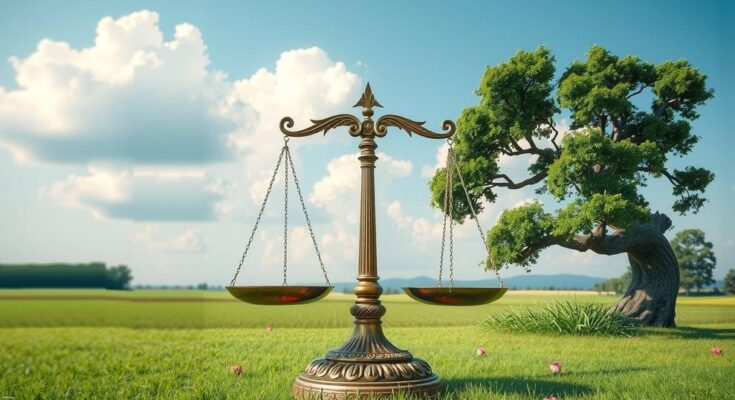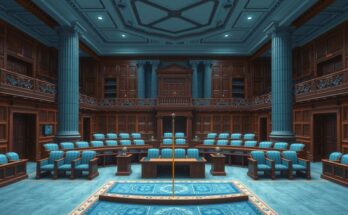South Africa’s historical land inequalities, rooted in apartheid, have motivated government reforms, including a controversial expropriation act. The act allows for land redistribution, spotlighting acute racial tensions and international critique, particularly from Donald Trump and Elon Musk, who cite discrimination against White farmers. South African officials clarify that no land has been confiscated without compensation, amid rising fears regarding aid withdrawal and trade impacts.
South Africa has faced a persistent land inequality issue, rooted in its apartheid past. The 1913 Natives Land Act constrained Black land ownership to a mere 7%, later adjusted to 13%. Even today, Black individuals, making up 81% of the population, reportedly possess only 4% of private land, based on a 2017 government audit.
The South African government has initiated corrective measures, notably with the recent signing of an expropriation act by President Cyril Ramaphosa. This law permits the government to acquire land for redistribution, with compensation only in circumstances deemed ‘just and equitable.’ However, critics note that this act has sparked tensions around race and land ownership, especially claims of discrimination against White farmers made by figures like Donald Trump and Elon Musk.
Musk has condemned the new ownership regulations as “openly racist,” with some South Africans opposing his views. Resident David Van Wyk dismissed claims of victimization for White South Africans, emphasizing that they enjoy significantly higher incomes compared to their Black compatriots. He argued that the Expropriation Act aims to address long-standing inequities.
Critics of the legislation, such as attorney Henk Smith, assert that while aimed at fairness, the approach lacks finesse in execution. He advocates for just compensation during land expropriation, emphasizing that abuses by mining companies necessitate a different response.
In response to South Africa’s land reform moves, President Trump has cut off $440 million in aid, claiming it counters violence against White landowners. His executive order threatens existing support for health programs crucial to South African communities, heightening concerns about further U.S. sanctions.
South Africans are anxious, fearing the withdrawal from trade privileges under the African Growth and Opportunities Act, which may severely impact key sectors like agriculture and automotive industries. The South African Department of International Relations described Trump’s claims about the expropriation act as alarmist.
Furthermore, AgriSA, representing farmers, criticized misinformation surrounding the act, stressing that to date, no confiscation of private land without compensation has occurred. They noted that isolated incidents of land intrusions do not reflect the broader aims of the expropriation law.
The Solidarity Movement echoed sentiments against proposed race-based discrimination but refuted fabrications regarding widespread land seizures. They strive for clarification without calling for sanctions against South Africa. Meanwhile, advocates within the AfriForum group highlighted the challenges some sectors face in society, which remain contentious points in ongoing debates.
Despite claims of a so-called “farm murder problem,” research indicates that the nation suffers from a general violent crime issue affecting all demographics, rather than specifically targeting farmers. This indicates a complex landscape that deserves nuanced understanding rather than simplistic narratives.
In summary, South Africa’s land inequality, stemming from apartheid’s legacy, necessitates urgent reform, exemplified by the recent expropriation act signed by President Ramaphosa. While this legislation aims to rectify historical injustices, it has attracted international criticism and political responses from figures like Trump and Musk, leading to broader discussions about societal inequalities. The ongoing debates reflect deep-seated racial tensions, illustrating the complexity of addressing these long-standing issues without inciting further division.
Original Source: edition.cnn.com




